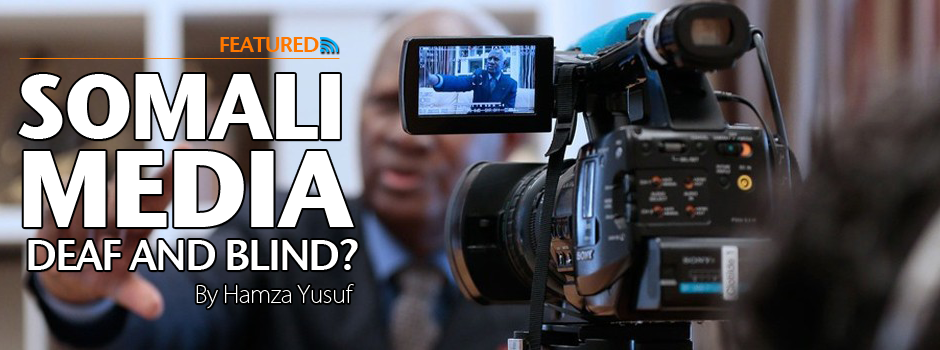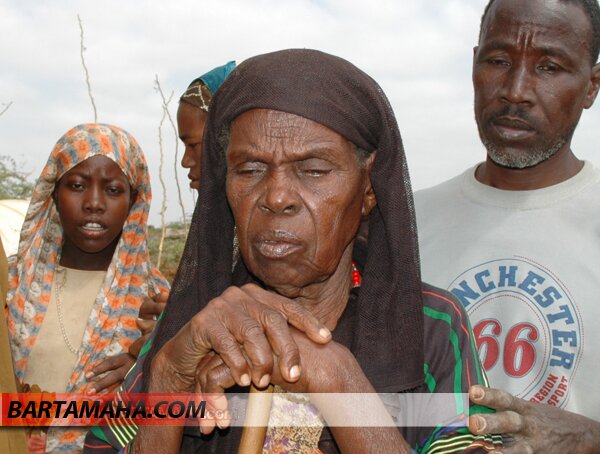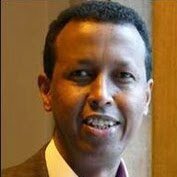Autism and the Somali Community: What You Need to Know

Written by Sirad Shirdon — By now, most of you have heard about this disorder commonly referred to as Autism. This is a disorder most of us were unfamiliar with before migrating to the West. Yet it has affected many of our children. Most of us know children or families who’ve been afflicted with this disorder. This article will be focusing on what the signs and symptoms are, as well as the services currently available for children living with Autism.
What is Autism?
Autism spectrum disorders are a range of disorders which manifest in three ways: impaired social interaction, problems with communication and abnormal behaviors (e.g., repetitive behavior). The most common is Autism, which will be focused on in this article.
Why Somalis should be concerned
Recently, the Center for Disease Control raised the number of children in the US with Autism, from 1 in 150, to 1 in 110. This is a staggering jump in a country with a population of 315 million. Unfortunately, since many Somalis are recent immigrants, research has been very limited in this field. Despite this, there have been some media reports; the NY Times profiled Minnesota Somalis twice last year, regarding a possible cluster of Autism in Minneapolis’s Somali community. In April 2009, the Minnesota Department of Health confirmed the fears of Somali families: Somali children were found to be represented in Autism education programs 2 to 7 times greater than non-Somali students. Researchers in Minneapolis and neighboring St. Cloud are presently trying to determine what the true prevalence of Autism is amongst Somalis in Minnesota. Amongst Ohio Somalis, no formal studies have been commissioned as of yet. In my work at Nationwide Children’s Hospital in the Speech Therapy Department, I can confidently say that the Somali children we serve are increasingly children with a diagnosis of Autism.
Signs and Symptoms?
Little or no eye contact
For infants, no babbling or pointing to different things
No single words by 16 months, or 2-word phrases by 2 years of age
No response to one’s name or simple directions
Lining up of toys and other rigid, repetitive behavior
Child may have had language/social skills at one time, but lost those skills
Echolalia: the child will repeat words, phrases or sentences which you say several times. Children may also repeat lines from TV shows or movies several times.
Most of us have heard Somali people say the following: “if the child’s not talking, don’t worry! The child will grow out of it.†I’ve heard this first hand from Somali mothers of children with Autism. While this may be true for a few children, late talking is one of the symptoms of Autism. If you recognize these signs/symptoms in your children, you should contact your family doctor right away. Your family doctor will refer you to professionals trained in diagnosing Autism (developmental doctors, psychologists etc). If a diagnosis is made, your doctor will write you referrals for services, depending on the age of the child.
What treatments are available?
Typically for young children (0-3), services are administered through early intervention where the child will have access to occupational therapists, speech therapists, and other professionals.
Once a child reaches the age of 3, there are special needs preschools and kindergartens designed to provide intensive services. Once a child is school aged, an assessment will be completed to see if the child qualifies for what is called an Individualized Education Plan (IEP). The symptoms of children with Autism vary from case to case; some children display average language skills, while others will be severely delayed. Children with more moderate to severe Autism are usually provided an IEP. The creation of an IEP leads to greater accommodations made for the student in the classroom and additional services which may include occupational therapy, ABA therapy, and speech therapy.
Early intervention is key!
Research has shown that outcomes are best for children who receive an early diagnosis, and start receiving treatment early. The earlier a child is assessed (and treated), the better.
What you can do
Contact the departments of health and education in your own city, and encourage them to commission studies looking into the autism prevalence in the Somali community. The key to the positive response of the local and state government in Minnesota was due in large part to the advocacy of Somali parents with children with Autism. More studies need to be done to assess the prevalence of Autism. Once researchers and health professionals better understand the numbers, treatment options will become more customized to the Somali population.
Become more involved in your children’s schools and hospitals. Engagement with the greater community will provide Somalis with a greater voice wherever they may be.
Spread this information to all of your family members.
Sirad Shirdon
Nationwide Children’s Hospital
Columbus, OH
[email protected]
Comments
comments
 Calendar
Calendar



































